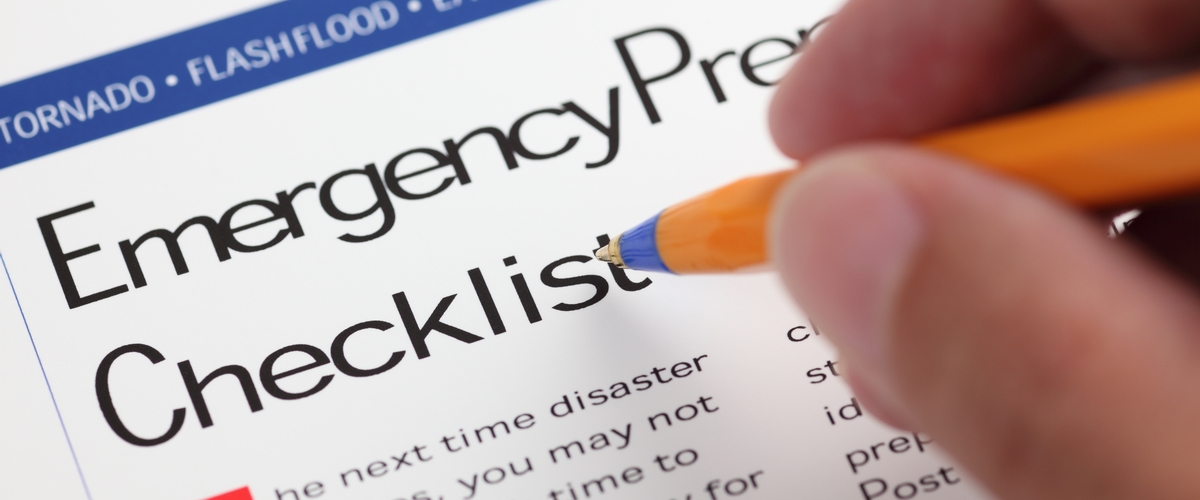Emergency Preparedness for Exceptional Families

How prepared are you and your family for an unexpected emergency? Natural and man-made disasters can affect anyone. Could your family endure the hardships of a hurricane, wildfire, earthquake, tornado, winter weather, or flash flood? What is your family plan in the event of community violence or terrorism? The most important preventative factor with all disasters is to STAY PREPARED!
Assemble a disaster supply kit. Include food, water, and supplies that will allow your family to survive for a few days without access to outside assistance. For example: bottled water, non-perishable food items, flashlights, a battery powered radio, extra batteries, and a first aid kit. Additional considerations may include supplies for infants and pets, cash, blankets, clothing and copies of identification cards.
Establish a Family Disaster Plan. Address communication, transportation and reunification requirements for your family. Include both plans to evacuate immediately and to shelter for an extended period of time. Talk to your family members about the disasters that could occur in your area. Teach children their parents/guardians’ names, phone numbers, addresses, and a family password to prevent them from going with a stranger. Your plan should include a meeting place if you are separated from your family. Identify evacuation routes and know the directions to a friend or family member’s home that is far away where you could stay if needed. Ensure school/daycare staff knows who can pick up your child if you are not able to do so. Identify the location of emergency shelters in your area that are able to meet your needs (medical, family and pets).
Special needs. Family members with special needs may require additional considerations in regards to preparation. Talk to your physician about emergency medical plans and know the location of more than one facility if dialysis or other life-sustaining treatment is required. Be sure to have enough medication in your possession to maintain correct dosage until you can access a pharmacy. When a State of Emergency is issued, TRICARE may authorize early prescription refills, blanket waivers for referrals or other emergency benefits. Information regarding these benefits can be accessed at www.tricare.mil/disaster. If a family member is non-verbal, consider an emergency bracelet for identification purposes. For family members with sensory issues, what accommodations will you need to make ahead of time to help them cope with the situation? Durable medical equipment needs a plan as well. Do you have access to a generator or battery power in the event of a power outage? Power companies need to be notified ahead of time if you have medical equipment in your home requiring electricity. Keep in mind that the power company may not be able to restore power in a timely manner and you need to have a plan to receive proper care in the event of longer outages.
EFMP. Upon initial enrollment and during PCS transition, be sure to discuss particular requirements or accommodations that may be needed for your family member during a disaster. Due to its mandatory enrollment requirement, EFMP is able to coordinate with safety offices, housing offices and PMO to address your family’s unique preparedness needs. A variety of programs throughout our Marine Corps installations may be available to you. Be sure to ask about trainings, emergency generators, and assistance with evacuations. According to Maj Michael Shull, a Marine enrolled in EFMP, “The fear of losing power is great; however, it [a generator on loan from EFMP] decreases the fear of emergency situations. We would still most likely choose to leave the home with an extended loss of power; however we would not need to do so immediately.”
The links below include resources providing a more comprehensive listing of what to include in your disaster supply kit, information on a variety of different disaster types as well as comprehensive instruction on how to establish an emergency communications plan. Utilize these websites to sign up for disaster alerts so that you have as much prior notification as possible and can access the locations of available shelters after the disaster has occurred. You can also contact the Exceptional Family Member Program for more information. Remember, the most important preventative factor is to STAY PREPARED!